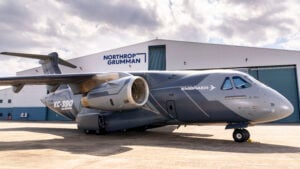Safran has officially closed the acquisition of Collins Aerospace’s flight control and actuation activities, marking a pivotal step in becoming a global leader in the field. These systems are essential to the operation of commercial and military aircraft, as well as helicopters, and are regarded as mission-critical components. The acquisition significantly strengthens Safran’s position in this sector, particularly in readiness for the demands of next-generation aviation platforms.
The acquired business comprises approximately 4,000 employees spread across eight primary sites located in the United Kingdom, France and Italy, with additional operations in Poland, the United States and India. Collins’ flight control and actuation systems are currently integrated into 180 different aircraft platforms and generated an estimated US$1.55 billion in revenue in 2024, with EBITDA reaching around US$130 million. The business will be officially consolidated into Safran Electronics & Defense as of August 1, 2025.
Safran’s CEO, Olivier Andriès, highlighted the strategic value of the acquisition, calling it a “unique opportunity” to strengthen the company’s presence in a highly technical and profitable domain. He noted the compatibility of the new assets with Safran’s existing product range and the firm’s focus on technological advancement and recurring aftermarket sales.
Looking ahead, the aviation industry’s push towards decarbonisation and increased electrification will demand innovative flight control systems. The integration of Collins’ advanced hydraulic and mechanical capabilities with Safran’s expertise in electro-mechanical systems and electronics puts the company in a strong position to support future aircraft designs.
Moreover, the acquisition enhances Safran’s capabilities in helicopter and nacelle actuation, areas where the group already maintains a strong global presence. In defence, the deal bolsters Safran’s portfolio of actuation and control solutions for military aircraft and missiles, further reinforcing its sovereignty-related activities and long-term growth prospects.
































